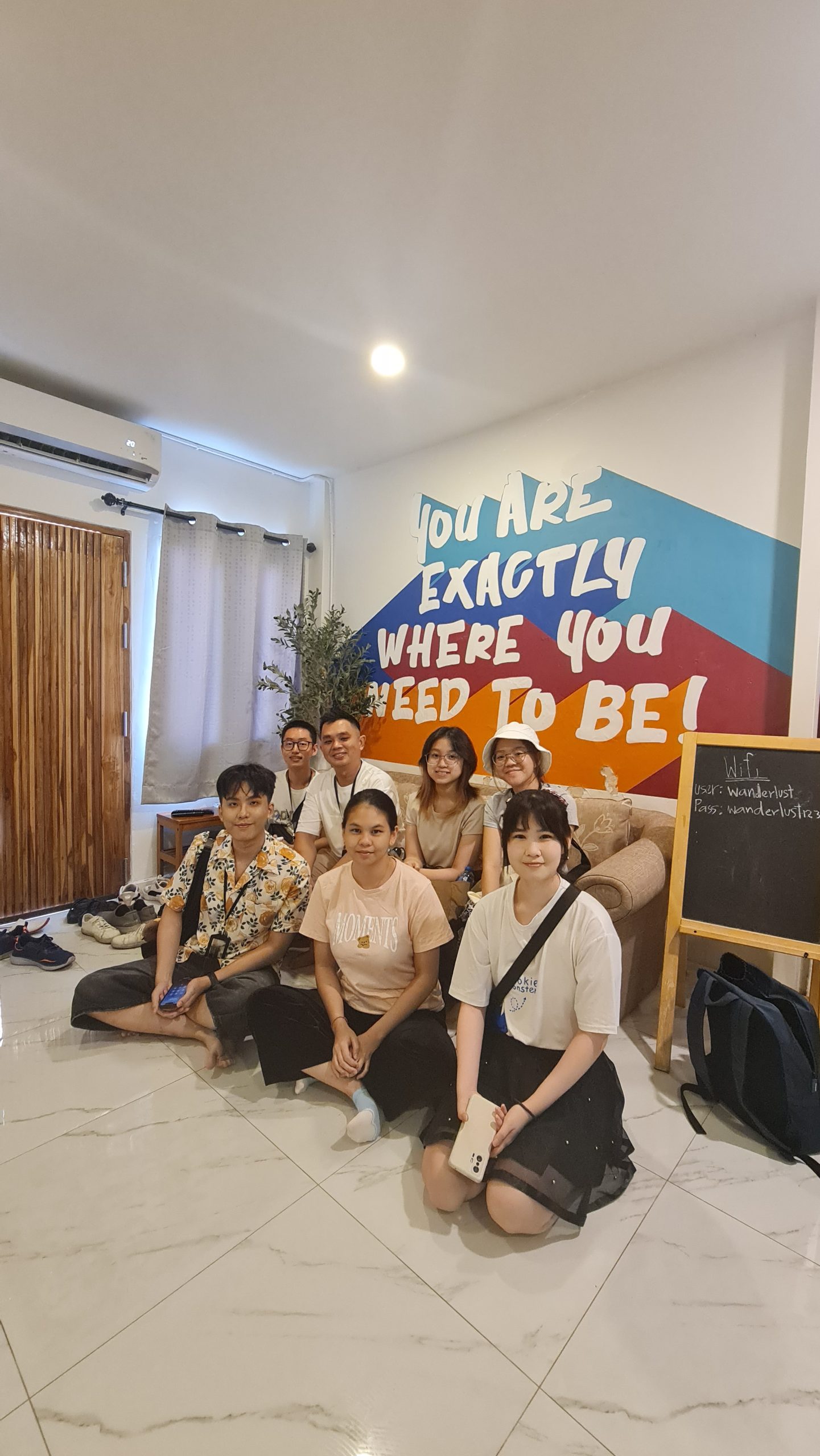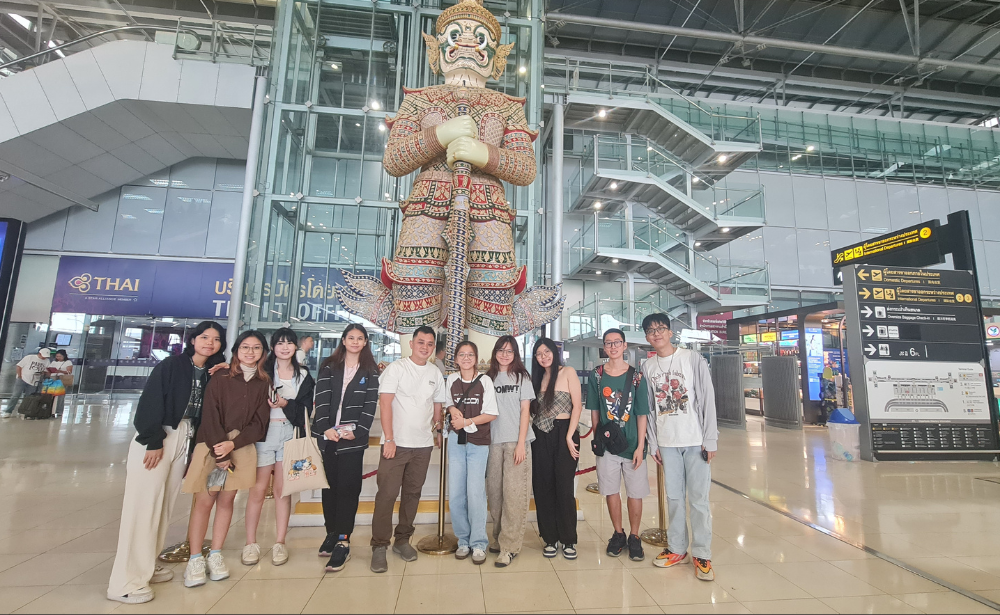From 18 to 21 March 2025, eight students from SEGi embarked on an unforgettable study tour to Bangkok, Thailand, where bustling streets, spiritual landmarks, and urban innovation transformed the city into a living classroom. Under the guidance of lecturer Lee Chin Ching, the four-day experience blended academic insight with cultural immersion, offering students an in-depth look at sustainable tourism development, urban planning, and heritage preservation.
Upon arrival, students explored how commercial hubs like Siam Paragon and MBK Center skillfully integrated Thai culture into luxury retail spaces. At the Erawan Shrine, they witnessed how sacred spaces coexist with modern infrastructure, offering a valuable lens on spiritual continuity in an evolving metropolis. As the day ended at the vibrant JODD Fair night market, students reflected on the economic significance of informal tourism spaces.
The learning deepened at the Ancient City open-air museum, where replica heritage sites sparked critical discussions on preservation and authenticity. A stroll through the culinary maze of Chinatown revealed how long-standing vendors embraced tourism while honouring traditional recipes—an insightful case study in adaptive entrepreneurship. These real-world observations brought tourism theory to life in ways no classroom could replicate.
Bangkok’s dual identity as both a city of legacy and of progress was highlighted through visits to the National Museum, ICONSIAM, and the majestic Wat Arun. From historic relics to futuristic shopping experiences and riverside temples, students saw how Thailand balances innovation with heritage. Their final evening at Chulalongkorn University’s street food market became a reflection on Bangkok’s vibrant, community-based culinary economy.
The experience exemplified the principles of SDG 4: Quality Education, providing lifelong learning through immersive, skills-based education. It also supported SDG 8: Decent Work and Economic Growth by showing how tourism empowers local economies, and SDG 11: Sustainable Cities and Communities by illustrating urban growth that respects cultural heritage. With tourism generating 10% of global GDP and 1 in 10 jobs worldwide, understanding its real-world dynamics is essential for future leaders in the industry.
Beyond tourism theory, the trip ignited a sense of professional purpose. SEGi College Penang’s students returned with sharper analytical skills, stronger cultural literacy, and a clearer understanding of their future roles within the global travel landscape. For these aspiring professionals, Bangkok became more than just a destination—it became a masterclass in sustainable urban tourism.
This event is organised in support of the following United Nations Sustainable Development Goals (SDG):
Quality Education (SDG 4)
Decent Work and Economic Growth (SDG 8)
Sustainable Cities and Communities (SDG 11)


